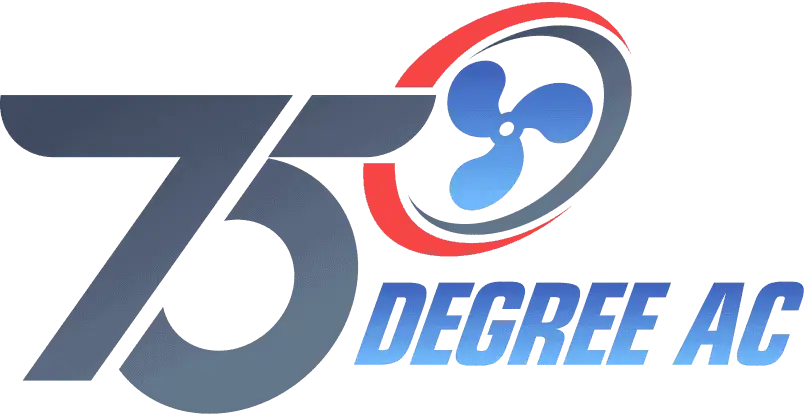Welcome to your comprehensive guide to tackling common AC problems and ensuring your air conditioning system operates at its best. Whether you’re facing issues with cooling, drainage, or electrical malfunctions, our guide is here to help.
We’ll walk you through troubleshooting air conditioner problems step by step, providing expert solutions to keep your home comfortable year-round. Say goodbye to sweaty days and restless nights with our tips for addressing common HVAC concerns effectively.”
Table of Contents
ToggleCommon AC Problems: Troubleshooting and Solutions
Is your sanctuary turning into a sauna despite your air conditioner running full tilt? It can be frustrating and uncomfortable when your AC starts acting up.
In this comprehensive guide, we’ll delve into common AC problems, their root causes, and practical solutions to keep your excellent intact.
Why Is My Air Conditioner Not Cooling The House?
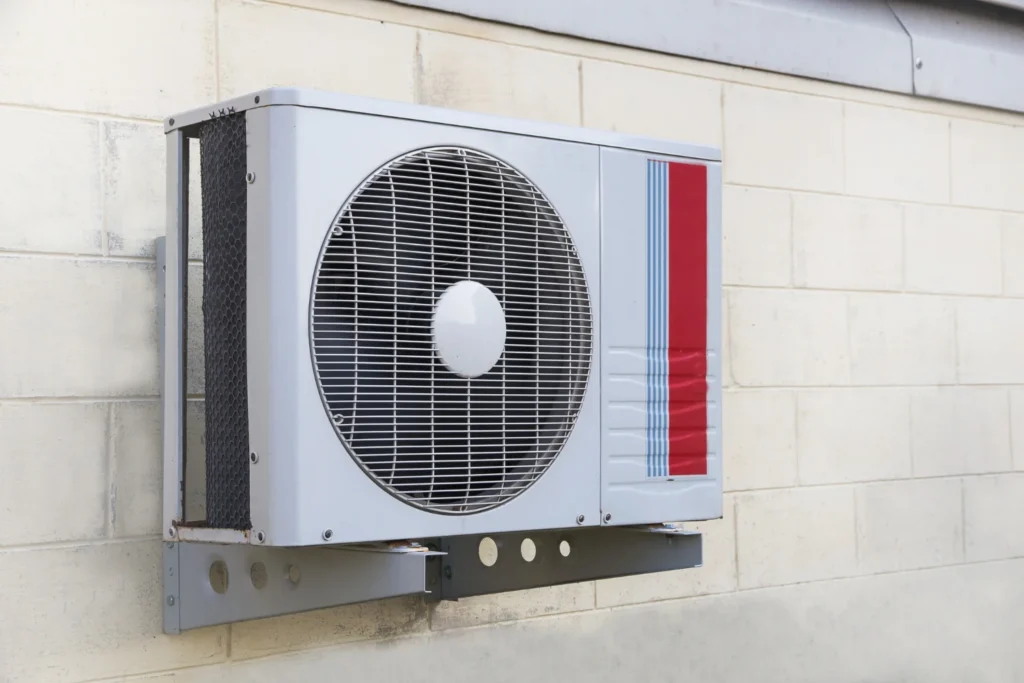
One of the most Common AC Problems people face is their ACs need to be more effective in cooling the house.
This problem can stem from various factors, but a frequent culprit is a clogged air filter. When the filter is dirty, airflow is restricted, hindering the cooling process.
Additionally, inadequate insulation or obstructions around the external unit can contribute to insufficient cooling.
Solution
To address these Common AC Problems, start by replacing or cleaning the air filter regularly. Aim to do it once a month during peak usage seasons to ensure optimal performance.
Additionally, check for any obstructions around the external unit and ensure proper insulation in your home.
If the problem persists, consider consulting with a professional technician to assess and rectify any underlying issues.
Your AC Is Constantly Turning On and Off
If your air conditioner keeps turning on and off more often than usual, it might be experiencing a problem called short cycling.
This issue can cause higher energy usage and potential damage to the compressor.
Short cycling can happen due to several reasons, such as having an oversized unit, low refrigerant levels, or a malfunctioning thermostat.
Dirty evaporator or condenser coils can also lead to short cycling by disrupting the heat exchange process.
Solution
Contact a professional HVAC technician to assess and recalibrate your thermostat settings. Ensure your unit is appropriately sized for your living space to avoid unnecessary wear and tear.
Address any refrigerant leaks promptly to maintain peak efficiency. Additionally, regular cleaning and maintenance of evaporator and condenser coils can prevent short cycling and optimize performance.
Your AC Won’t Turn On
Discovering that your AC refuses to kick into gear can be alarming, especially during scorching summer days.
This problem might be linked to electrical issues, a malfunctioning thermostat, or a blown fuse. Faulty wiring or a malfunctioning capacitor can also prevent the AC from starting.
Solution
Start by checking the thermostat settings and ensuring it’s set to the desired temperature. If the problem persists, inspect the circuit breaker for a tripped fuse.
Replace the fuse if needed, and if the issue persists, seek professional assistance for a thorough electrical inspection.
A qualified technician can diagnose and repair any electrical issues or faulty components preventing your AC from turning on.
Your AC Is Not Blowing Cool Air
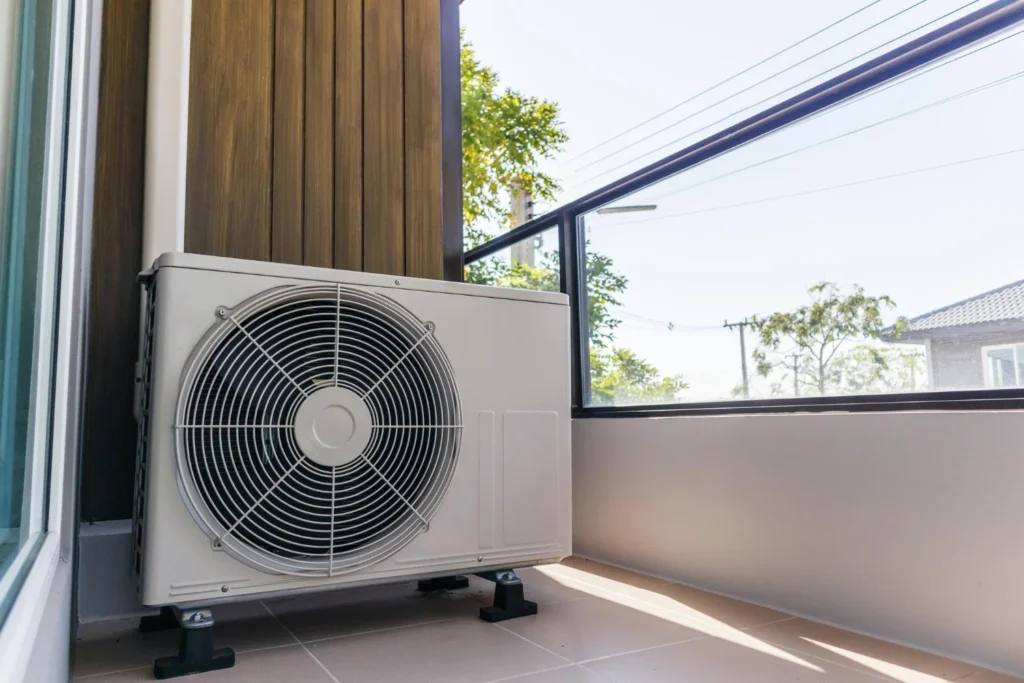
An air conditioner not blowing cool air is a paradoxical situation, and the cause is often related to refrigerant levels.
A refrigerant leak or insufficient refrigerant can lead to warm air circulation. Additionally, dirty or blocked air ducts can restrict airflow, compromising cooling efficiency.
Solution
Engage a professional technician to inspect for leaks and recharge the refrigerant as needed. Regularly schedule maintenance to identify and address any potential issues before they escalate.
Furthermore, ensure air ducts are clean and unobstructed to facilitate proper airflow.
Regular duct cleaning and maintenance can improve indoor air quality and optimize cooling performance.
Your AC Is Having Drainage Issues
When your AC is not effectively draining moisture, it can result in water pooling around the unit, potentially causing damage.
Clogged drain lines or a malfunctioning condensate pump are common culprits. Additionally, algae or mold growth within the drain lines can obstruct water flow.
Solution
Regularly clean the drain lines to prevent clogs and ensure proper drainage. If you notice standing water, consult a professional to assess and repair the condensate pump. Timely attention to drainage issues can prevent water damage and maintain your AC’s efficiency. Installing a condensate drain pan overflow switch can provide added protection against water damage by shutting off the unit in case of drainage problems.
Your AC Is Tripping the Circuit Breaker
Repeated tripping of the circuit breaker indicates an electrical problem within your AC system. This could be due to a short circuit, electrical overload, or a malfunctioning component. Common causes of circuit breaker trips include a dirty air filter, frozen evaporator coils, or a faulty compressor.
Solution
Avoid resetting the breaker multiple times without addressing the underlying issue, as it can lead to more significant problems. Contact a qualified technician to conduct a thorough electrical inspection and resolve the root cause. Regular maintenance and cleaning can prevent common AC Problems like dirty air filters or frozen coils, reducing the risk of circuit breaker trips and ensuring uninterrupted cooling comfort.
Your AC Is Making Strange Noises
Unusual sounds emanating from your AC can be disconcerting. Grinding, squealing, or banging noises may indicate issues with the fan motor, compressor, or other internal components. Loose or worn-out components can also cause rattling or vibrating noises.
Solution
Promptly turn off the AC and seek professional assistance to diagnose and repair the source of the noise. Ignoring strange sounds can lead to more extensive damage and higher repair costs. A qualified technician can perform a thorough inspection to identify the underlying issue and recommend appropriate repairs. Regular maintenance and timely repairs can prevent excessive wear and tear, prolonging the life of your AC and ensuring quiet and efficient operation.
Katy’s Premier A/C Repair Service
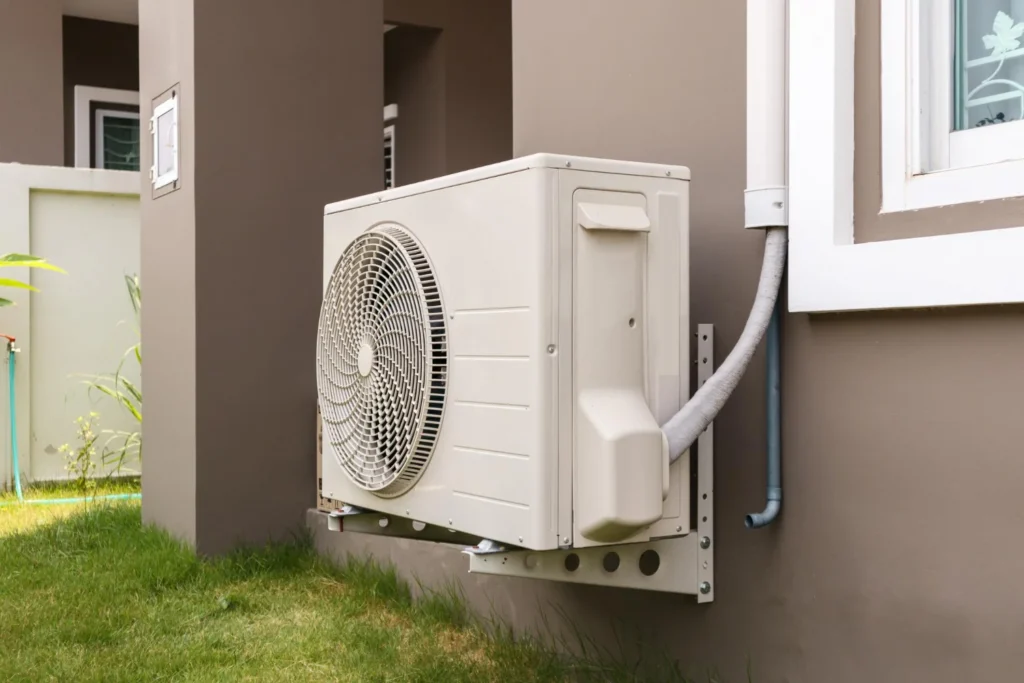
For Katy residents facing persistent AC challenges, 75 Degree AC offers reliable and efficient air conditioning repair services. Our team of experienced technicians specializes in diagnosing and resolving a wide range of AC issues to restore your home’s comfort. Whether you’re dealing with cooling problems, electrical issues, or strange noises, we have the expertise and tools to get your AC back on track.
Solution
Contact 75 Degree AC for prompt and professional AC repair services tailored to your specific needs. We prioritize customer satisfaction and ensure your cooling system is back on track in no time.
With our comprehensive diagnostics, transparent pricing, and quality artistry, you can trust 75 Degree AC to deliver exceptional results and lasting solutions.
Don’t let Common AC Problems disrupt your comfort—call us today and experience the difference of working with Katy’s premier AC repair service.
Replace The Start/Run Capacitor(s)
Capacitors play a crucial role in the proper functioning of your AC compressor and fan motor.
A malfunctioning capacitor can result in the unit not starting or running inefficiently. Over time, capacitors can weaken or fail due to heat, age, or electrical surges.
How To Replace A Capacitor
- Turn off the power to the AC unit to prevent electrical shock.
- Discharge any stored electricity by shorting the capacitor terminals with an insulated screwdriver.
- Note the capacitor’s wiring and connections before removing it to ensure proper installation of the new capacitor.
- Install the new capacitor by connecting the wires as per your previous notes. Take care to match the correct terminals to prevent damage.
- Turn the power back on and test the AC to ensure proper operation. Monitor the unit for any unusual noises or behavior that may indicate further issues.
How To Test Your Repairs
After making any repairs or replacements, it’s crucial to test your AC to ensure everything is functioning correctly. Follow these steps to verify the effectiveness of your repairs:
- Gradually lower the thermostat setting to trigger the AC to turn on.
- Listen for any unusual noises during the startup process, such as grinding, squealing, or banging sounds.
- Monitor the temperature in your home to ensure the AC is cooling effectively. Use a thermometer to measure the temperature at different locations around your home and provide consistent cooling throughout.
- Check the airflow from the vents to ensure it’s solid and consistent. Weak airflow may indicate underlying issues with the ductwork or blower motor.
- Monitor the AC’s performance over the next few days to ensure the problem has been resolved. If you notice any recurring issues or unusual behavior, contact a professional technician for further inspection and repairs.
Additional Maintenance Tips To Avoid HVAC Problems
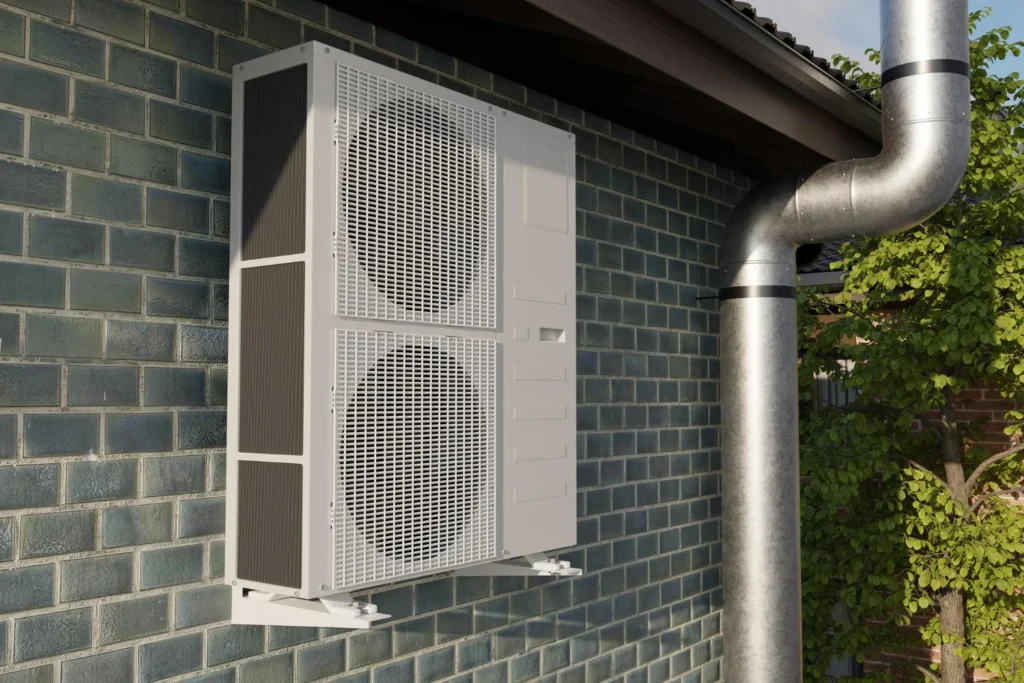
Preventive maintenance is critical to avoiding common AC problems. Follow these tips to keep your system running smoothly:
- Regularly clean or replace air filters: Dirty filters restrict airflow and can lead to various AC issues. Replace or clean filters every 1-3 months, depending on usage.
- Keep the area around the outdoor unit free from debris: Clear away any leaves, branches, or other debris that may obstruct airflow to the outdoor unit.
- Schedule annual professional maintenance checks: Regular maintenance by a qualified technician can catch potential issues early and keep your AC running efficiently.
- Monitor thermostat settings: Set your thermostat to a reasonable temperature and avoid drastic adjustments, which can strain the system.
- Ensure proper insulation: Well-insulated homes retain cool air more effectively, reducing the workload on your AC.
- Address minor issues promptly: Don’t ignore Common AC problems, such as strange noises or reduced airflow. Prompt repairs can prevent them from escalating into major issues.
By following these maintenance tips, you can extend the lifespan of your AC system and avoid costly repairs down the line and can get rid of Common AC Problems.
FAQ: More About Common AC Problems
How do you troubleshoot Common AC Problems?
For troubleshoot Common AC Problems, Start by checking the thermostat settings, inspecting the air filter, and ensuring proper insulation. If issues persist, consult with a professional technician to diagnose and resolve the problem accurately.
What is the most common air failure on an air conditioning system?
Refrigerant issues, such as leaks or low levels, are among the most common failures in air conditioning systems. Regular maintenance and prompt attention to refrigerant-related problems can prevent major breakdowns.
Why is my air conditioner running but not cooling the house?
Possible causes include a clogged air filter, low refrigerant levels, or a malfunctioning thermostat. Address these issues systematically, starting with cleaning or replacing the air filter and consulting with a professional if necessary.
Where is the reset button on the AC?
The location of the reset button varies among AC units. Refer to your unit’s manual or consult with the manufacturer for specific instructions. In some cases, the reset button may be located on the thermostat or near the condenser unit.
How do you do a hard reset on the AC?
Perform a hard reset by turning off the power to the AC unit, waiting for at least 5 minutes, and then turning the power back on. This can help reset the system and resolve minor issues. If problems persist, seek professional assistance.
In conclusion, understanding and addressing common AC problems can prolong the life of your unit and keep your home comfortable. Regular maintenance, timely repairs, and professional assistance when needed are essential for optimal HVAC performance. If you’re in Katy and facing AC challenges, 75 Degree AC is here to provide reliable solutions and restore your indoor comfort.
Conclusion About Common AC Problems
If your air conditioner isn’t cooling your home like it should, it’s essential to tackle Common AC Problems right away. Things like clogged air filters, improper sizing or placement, and faulty thermostats can all affect its performance. By fixing these problems promptly, you can make sure your AC works better and keeps your home comfortable. If you’re having trouble troubleshooting or fixing Common AC Problems, reach out to a qualified HVAC technician for expert help and solutions.
